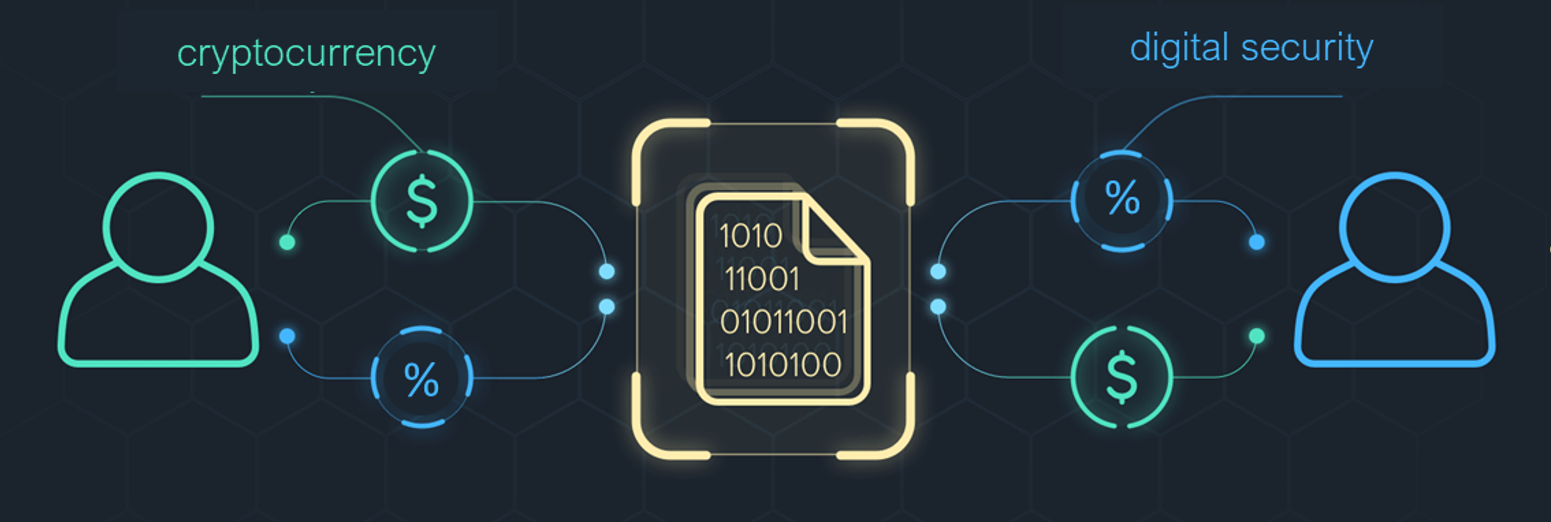What are smart contracts? Imagine that you need to sell a pack of shares. Traditional share trading involves complex paperwork. Brokers, lawyers, and others navigate risks. Firms communicate to close deals. Investors hire agents to handle formalities. Intermediaries oversee transactions from start to finish. Finding help adds costs but reduces risks for most.
The intermediary serves as an escrow, making transactions safer. When dealing with strangers over large sums, an escrow protects both parties. Escrows are especially useful for real estate deals since the amounts involved are usually quite significant. After a successful sale closes, the seller’s and buyer’s brokers typically split a commission of around 3 percent of the final sale price for bringing the deal together. This amounts to quite a substantial financial loss. This is exactly one of the problems that EDSX resolves.
Smart contracts could revolutionize real estate in these situations. They work through an “If-Then” process to streamline transactions. This principle transfers ownership only when payment reaches the seller. Most importantly, smart contracts solve trust issues between buyers and sellers. The system ensures money and property exchange as agreed. They make transactions less burdensome while building confidence without intermediaries.
Smart contracts also function as escrow services, meaning they store both money and equity ownership rights in the system and distribute them simultaneously to participating parties. Moreover, hundreds of people (blockchain nodes) witness and verify the transaction, guaranteeing faultless delivery. As trust between the parties is no longer an issue, there is no need for intermediaries. Note that EDSX is not an intermediary but merely rules of the game setter as it provides the smart contract digital templates for parties to use and a place for them to meet and find each other. A smart contract can pre-program all the functions that a stockbroker, custodian or organized marketplace performs, simultaneously saving both the seller and buyer considerable money.
How do smart contracts work
Simply put, smart contracts work a lot like vending machines. You just drop a required amount of a cryptocurrency into the smart contract, and the digital securities, or whatever else drop into your account. And vice versa, you just drop the digital securities into the smart contract, and the equivalent amount of a cryptocurrency, or (or another digital asset in case of swaps) drops into your account. Smart contracts not only pre-define all the rules and penalties but also enforce them. And the role of EDSX is exactly this to define a set of conditions that potential parties or users will find useful.
Interdependence
A smart contract can operate autonomously but also implement with any number of other smart contracts. They can depend on each other, setting up so one’s completion starts another. For example, one contract’s success triggers another. In theory, smart contracts could entirely run systems and organizations. To some degree, cryptocurrencies already implement this – predefined laws allow autonomous, independent networks.
Objects of smart contracts
Essentially, there are three integral parts, also referred to as objects, to every smart contract. The first one is signatories, the two or more parties using the smart contract, agreeing or disagreeing with the terms of the agreement using digital signatures. At EDSX signatories need to be known to EDSX at all times and that is why they are required to pre-register and undergo a whitelisting process involving KYC. The second object is the subject of the agreement. And when it comes to investment instruments, regulation and compliance do apply. EDSX lets people deal only with regulated and compliant digital securities.
To understand digital securities, one must know their representation – the rights and value enshrined. Moreover, these objects can only live within a smart contract’s environment as digital security or cryptocurrency. Essentially, smart contracts require unfettered and direct access to govern said objects. In short, what are these digital assets and how do the smart contracts connect to securely manage them? Additionally, the properties exist solely in the domain of their smart agreements. Even though the smart contracts were first discussed back in 1996, it was this particular object that stalled their development. This problem was partially solved only after the first cryptocurrency appeared in 2009.
Finally, any smart contract has to include specific terms. Smart contracts require terms be mathematically defined. A suitable programming language encodes the full terms. All parties must meet demands. Rules define rewards and consequences for meeting or breaking terms. Precise coding leaves no room for interpretation of what is required by signatories.
Environment
In order for them to exist and function properly, smart contracts have to operate within a specific suitable environment. First of all, the environment needs to support the use of public-key cryptography, which enables users to sign off for the transaction using their unique, specially generated cryptographic codes. This is the exact system that the absolute majority of currently existing cryptocurrencies are using.
Secondly, they require an open and decentralized database, which all parties of the contract can fully trust and which are fully automated. Moreover, the entire environment itself has to be decentralized for the smart contract to be implemented. Blockchains, especially the Ethereum Blockchain, are the perfect environments for smart contracts. EDSX takes use of these tools to create a truly decentralized rules-based meeting point and eliminate any custodianship or intermediation.
Finally, the source of digital data used by the smart contract has to be completely reliable. Root SSL certificates, HTTPS, and other secure connection protocols already widely use and automatically implement on most modern software secure most smart contract platforms.
Smart contracts give you:
Autonomy — Smart contracts eradicate the need for a third-party intermediary of facilitator, essentially giving you full control of the agreement.
Trust — No one can steal or lose any of your documents, as they are encrypted and safely stored on a secured, shared ledger. Moreover, you don’t have to trust people you’re dealing with or expect them to trust you, as the unbiased system of smart contracts essentially replaces trust.
Savings — Notaries, estate agents, advisors, assistance and many other intermediaries are not needed thanks to smart contracts. And, by extension, the extortionate fees associated with their services.
Safety — If implemented correctly, smart contracts are extremely difficult to hack. Moreover, perfect environments for smart contracts are protected with complex cryptography, which will keep your documents safe.
Efficiency — With smart contracts you will be saving a lot of time, normally wasted on manually processing heaps of paper documents, sending or transporting them to specific places, etc.
How EDSX uses them
Smart contracts underpin the whole concept of EDSX. They are the main trading or exchange tool. Smart contracts guarantee money versus delivery mechanics and eliminate the need for EDSX, a third-party clearing/settlement provider, to hold money or assets. All parties hold the assets and currencies in their electronic wallets at all times.

Based in Zug, the platform is fully compliant with all Swiss laws related to financial intermediaries, banking, anti-money laundering, and organized trading facilities. Among its core values, there are innovative solutions through blockchain technology, which ensures security and liquidity.
EDSX is the first platform in Europe with primary and secondary markets for both institutional and retails. EDSX is a pioneering platform that employs the world’s leading technology to globally list security tokens in both primary and secondary markets, listing digital securities of real financial instruments to the public with a decentralized peer-to-peer exchange. Our goal is to fully engage every aspect of the financial revolution.
Do you have a question for us?
Send your query here:
info@edsx.ch

